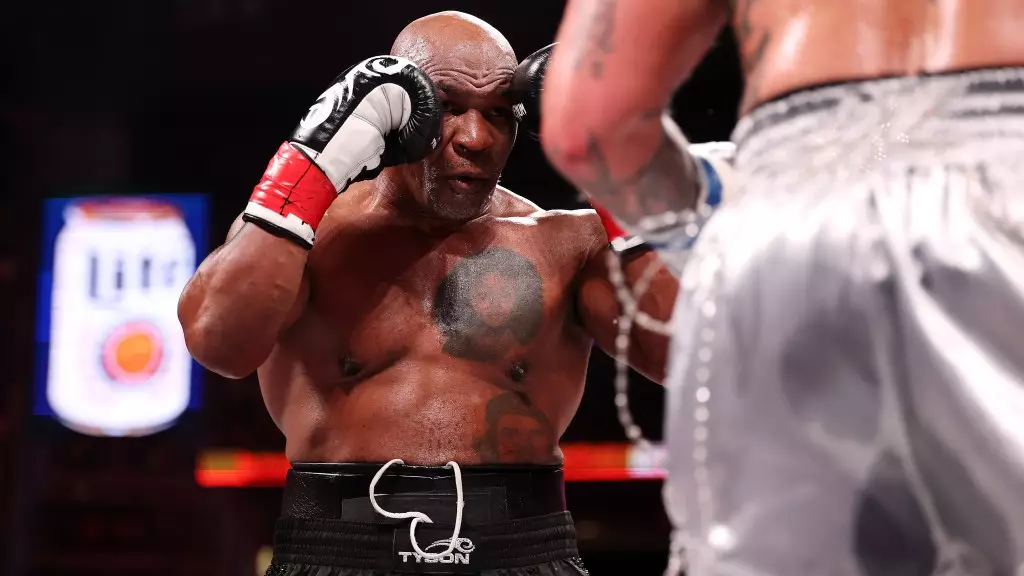In the world of boxing, where every punch and strategy matters, the peculiar habits of fighters often attract attention—and for good reason. One such instance occurred during the recent match between Mike Tyson and Jake Paul, where Tyson was seen repeatedly biting his own gloves. This unusual behavior didn’t go unnoticed by the ringside commentators, sparking chatter about its significance and the underlying reasons for this quirk. Despite the fight itself being a lackluster event, Tyson’s biting fixation became a focal point of interest, igniting discussions about his psychological and physiological responses during combat.
During the fight, the commentary team, featuring Mauro Ranallo, Roy Jones Jr., and Rosie Perez, engaged in an informal analysis of Tyson’s behavior. Jones, in particular, highlighted the incident each time Tyson was caught in the act. The possibly alarming action hinted at deeper issues—perhaps a malfunctioning mouthpiece? However, Ranallo quickly clarified that this behavior is part of Tyson’s long-documented fighting style. When queried by Ariel Helwani post-fight about the incident, Tyson confirmed: “I have a habit of biting my gloves in my fights, yeah. I have a biting fixation.” This straightforward admission added layers to the narrative surrounding Tyson’s longstanding eccentricities as a fighter.
Mike Tyson’s notorious biting habits date back to his infamous fight with Evander Holyfield in 1997, where he infamously bit off a piece of Holyfield’s ear. Such incidents have led to speculation and curiosity about whether there are psychological components at play. Fighters often endure extreme stress, and Tyson’s behaviors could be manifestations of that pressure. His predilection for biting his gloves may emerge as a coping mechanism, a signature move steeped in a rich history of both triumphs and controversies in the ring.
The implications of Tyson’s biting habit stretch beyond mere idiosyncrasy. They can reflect a fighter’s mental state, suggesting anxiety or a fallback reaction to pressure. Observations of other athletes also show that unique habits often provide a form of grounding or focus during high-stress situations. While for most fighters this may translate into rituals like a specific warm-up routine, for Tyson, it manifests through an intriguing biting tendency. This observation leads one to ask: could these habits enhance performance or distract from it?
Mike Tyson’s biting fixation is a curious thread woven into the fabric of his boxing persona. While it may initially appear as an oddity, it provides a window into the complex psychology of a fighter. In a sport revered for discipline and strategies, Tyson’s behavioral eccentricities remind us of the human side of these athletes, filled with quirks that define their approaches to challenges both inside and outside of the ring. As the sports community reflects on Tyson’s career and behavior, it raises one vital question: in the midst of competition, how do personal habits and psychological quirks affect performance? Tyson’s case illustrates that even the greatest champions are defined not only by their accolades but also by their unique traits, offering insights into the mind of one of boxing’s most enigmatic figures.

